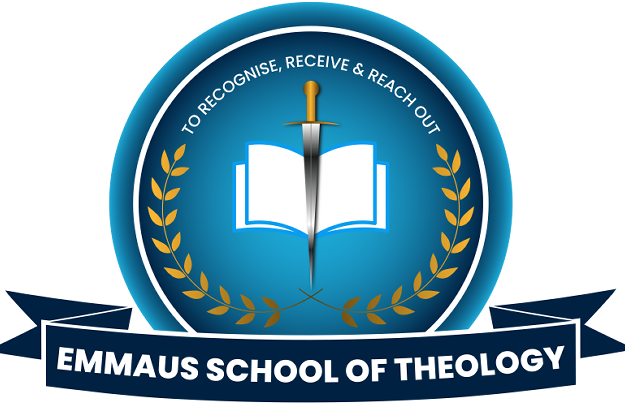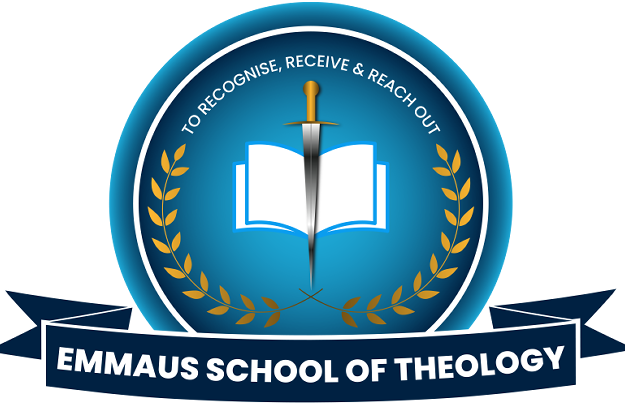Courses
-
Themes and Structures of the Old Testament
This class is presented to lead the student to a deeper understanding of the structure, authorship, themes and structure of the Old Testament. This unit is divided into six sections: The Pentateuch, the Pre-exilic historical books, the exilic and post-exilic historical books, the Poetical books, the pre-exilic prophetical books and the exilic and post-exilic prophetical books.
Each section covers the immediate purpose of the books, if and where they portray Christ, the Hebrew thought, typology and outline. Each looks at the main events featured in the section of the Old Testament being examined as well as the main characters featured. The student will understand the historical, prophetic and poetical aspects of each of the sections taught.
-
Eschatology
This class examines the eschatological teachings of scripture paying particular attention to the book of Revelation and the contrasting opinions of various theologians as to the events of the last days. This course looks at the Rapture, its timing and the eventual return of the Lord Jesus Christ as the Judge of the Quick and the Dead. The student will learn about the heresies of soul sleep and limbo, the Great Tribulation and the rise of the Antichrist. Touching the book of Daniel, the student will learn of the Old Testament prophesies concerning the events of the seven years of Tribulation and the revival of the Roman Empire. The course also covers the Pre-Millennial, Post-Millennial and A-millennial teachings and examines the final state of mankind.
-
Personal Evangelism
In the class, attention is given to the biblical foundation and mandate to evangelise, personal spiritual preparation for the task, problems encountered in witnessing, the role of prayer and the Holy Spirit in evangelizing, and methods of follow-up and discipleship for the convert.
-
Biblical Economics
This class looks at the scriptural teaching throughout both the old and New Testament concerning finances and the way in which the early church dealt with the issue of money. It examines what the contemporary church believes and what the scripture teaches concerning stewardship. The student will study the important issue of tithing and giving of offerings and will discuss the controversy in today’s church over the issue of money.
-
Introduction to Bible Doctrines
The purpose of this course is to introduce you to the most influential books in the world, the Bible. As the book itself is quite extensive, we will focus on the main biblical metanarrative, the “big story” that holds the book together. We will also examine how and why this book is held to be “sacred” by numerous faith traditions and develop an awareness of the stories that shape our culture.
-
Themes and Structures of the New Testament
This class is designed to lead the student to a deeper understanding of the structure, authorship, themes and structure of the New Testament. Divided into six sections, this class examines the time between the Testaments, an overview of the Gospels and Acts with the Life of Christ; An introduction to the General Epistles of Paul, including Romans, 1 & 2 Corinthians, Galatians, and 1 & 2 Thessalonians; More Epistles of Paul; Hebrews and General Epistles written by others and then Revelation.
The class will identify and clearly explain the main themes, outline and summary of each of the books of the New Testament with a clear understanding of the immediate purpose of each.
-
Spiritual Gifts in the Church
This class examines in detail the functions of each of the nine spiritual gifts as listed in the letter to the Corinthians and the outworking of each of these gifts in the church today, paying attention to their use and misuse and with reference to their use in scriptures. It also studies the benefits and pitfalls of the prophetic voice in today’s church and examines the rise of the prophetic in the context of the historical and contemporary church. The student will learn about the nature, characteristics and application of intercessory prayer and will examine some of the examples of intercessory prayer in personal and corporate settings.
-
Prayer
This class examines in detail the structure of prayer and the various types of prayer. The student will study the seven steps to answered prayer and discuss the various reasons why some prayers are seemingly not answered. The student will learn what scripture teaches concerning praying and speaking with other tongues and will discuss the issues that have arisen in today’s church over this subject. The class will study what Jesus taught on prayer and will look at what is taught in both the testaments concerning intercession. There will be opportunity for practical application in this class.
-
The Tabernacle
This class examines the construction of the tabernacle as outlines in scripture and compares it with the heavenly tabernacle and the encampment of the tribes and banners carried around the tabernacle. It includes an overview of the tabernacle and looks at the Fence, the Gate, the Bronze Altar and the Washstand and their significance.
The student will understand the typology of the Golden Lampstand, the Table of Shewbread and the Altar of Incense. The class will learn about the Holy of Holies, which includes an understanding of the Veil, the Ark of the Covenant and the Mercy Seat and also looks at the journeying of the Ark throughout its history, including in the Wilderness, in Canaan, in Philistia. It also looks at the return of the Ark to Canaan as well as the Tabernacle of David, the Temple and the ultimate Fate of the Ark.
-
The Character of the Believer
This course helps students gain an understanding of the Christian way of life and learning that enables virtue, servant leadership, and citizenship in God’s kingdom within the context of the concept of life calling and the discovery of one's God-given design as a basis for this calling. This discovery is based on foundational values revealed in the Christian faith.
These values form a Christian worldview that students will continue to develop throughout their entire educational experience. This emerging sense of calling can then be used to guide the student in taking actions of personal mission that can lead to greater success in their educational experience, and at the same time helps students make a positive impact in their world around them.
-
Life and Teachings of Christ I & II
This course covers the life, ministry, and teachings of Jesus Christ as presented in the four Gospels. Emphasis is on the analysis of the four Gospels in the context of the social, political, and religious conditions of the first century. Upon completion, students should be able to explain the background, purpose, message, and themes of the Gospels and the significance of Jesus Christ in the first century and beyond.
-
Homiletics
In this class the student will learn how to prepare a sermon and all the processes of preparation required to present a good sermon. The student will learn how to gather the right materials and how to structure a message for presentation to unbelievers and how this differs from one presented to believers.
The class looks at the structure of a good sermon, whether textual, topical or expository. It also shows the student the rudiments of research and study so that they are able to research, arrange, write and deliver a sermon in a competent manner. This class shows the importance of self-assessment when writing and delivering a sermon and helps the student to development good habits, such as note taking.
-
How to Study the Bible
Bible Study Methods is designed to introduce you to a process for studying the Bible and give you a chance to improve your skills. You will be exposed to the classic principles of interpretation, and then you will turn theory into practice by applying the principles as you study this inspired book. The main skill learned in this course is how to study the Bible responsibly and enthusiastically, using a systematic method. You will learn three major steps to understand the passage being studied: observation, interpretation, and application, which together we call inductive Bible study. You will also learn about the different methods of Bible study (i.e., word study, character study, topical and passage study).
-
Discipleship
The Great Commission that Jesus gave to His disciples in Matt.28:16-20 was to go and make disciples of all men. It is not enough to win people to the Lord. We must guide new converts to a place of stability in their relationship with God and their Kingdom involvement. This course presents the philosophy, approach, and tools that will assist the student in leading others to maturity.
-
Pneumatology
This course studies the person and ministry of the Spirit of God in both the Old and New Testaments. Attention is given to the Spirit in the life and ministry of Jesus as well as to the significance of the ‘fruit’ and ‘gifts’ of the Spirit in the community of faith. The experience and reality of Spirit baptism will be studied along with an emphasis on ‘spiritual language’.
-
Church History
This course offers a study of the development of the Christian church with emphasis upon the major historical movements, leaders, and theological issues from the First Century to the Middle Ages. Particular attention is given to the structure, purity and simplicity of the early church that led to its tremendous evangelical thrust.
-
The Application of Basic Christian Doctrine
This class examines in detail the fundamental doctrines accepted and taught by the Christian Church as understood from the scriptures. The student will explore and discuss the teaching of the nature of God, the Trinity, Jesus and the Holy Spirit. The class will also look at the church today and the sacraments held by the church world-wide.
‘The Nature of God’ is a study of God, making a distinction between His character and His acts; contrasting the Old Testament with the New Testament. ‘Hardness of Heart’ deals with one of the major barriers to our accepting all of God’s truth for us. ‘Authority of the Believer’ helps us to obtain the blessing God has for us and prevent Satan from robbing us. ‘Spirit, Soul and Body’ is a study of how our spirits are complete in Jesus if we are born again and how our soul and body should relate to our spirits.
The class will also look at the mission of the church, as detailed in Mark’s gospel and discuss how this can be worked out in today’s church and discuss the importance of these doctrines both corporately and in their personal lives.
-
Hermeneutics
We are told in the scriptures that we are to rightly divide the Word of God. In this class, students learn how to interpret the scriptures accurately. The students will have an opportunity to learn the principles given in the Bible that will keep them in truth and out of error. This course is imperative for all those who plan on preaching or teaching God’s Word.
-
Missions
This course provides an introduction to the theology of the Christian Mission in the Old and New Testaments, the responsibilities of the individual, the pastor, and the local church in implementing a missionary vision are given particular attention. Introduction to Missions will examine the missionary’s motives, objectives, calling, qualifications, and preparation as well as the spiritual and cultural life of the missionary in the field.
-
Introduction to the Bible
This class helps the student to develop greater confidence in the integrity of the Bible. This is accomplished by examining proofs of the Bible’s divine origin, the reliability of a translation, and the transmission of biblical manuscripts from the original copies to the present.
-
Principles of Faith
This class focuses on the students’ faith as a basic foundation of the Christian life, without which it is impossible to please God or to receive anything from Him (Heb.11:6). A life of faith is needed because everything in our spiritual life comes from faith. Paul emphasized this truth in Galatians 2:20 where he testified, “I live by the faith of the Son of God.”
-
Church Planting
The purpose of this module is to prepare students to engage in new church initiatives locally or overseas. Missional Church planters now see themselves as cross-cultural missionaries increasing the importance of missiological and contextual issues into local ministries. Included are biblical and theological rationales for church planting as an evangelistic strategy from a missiological and contextually sensitive perspective.
-
Introduction to Modern Cults I & II
This class introduces the student to the distinctive features of modern with their significance in the development of religious thought and with particular reference to their treatment of the central features of orthodox Christian doctrine.
-
Demonology
Demons and spiritual beings have been part of religions and human life throughout history and continue to be part of our contemporary culture in various forms. In this course we will explore the theme of demons, demonology, and spiritual beings in various contexts within Religion and beyond. We shall also explore its continuous appeal for people of different historical times, places, and cultures.
-
Introduction to Christian Apologetics I & II
This course is designed to be a basic introduction to the biblical, theological, and philosophical foundations of Christian apologetics. Attention is given to the differences between Christian thought and select examples of non-Christian thought. It will explore some of the assorted challenges to Christian belief and provide a survey of resources for meeting those concerns. There is an emphasis on using the discipline to effectively engage the contemporary scene and incorporating the ministry of apologetics in the context of the local church.
-
Gifts of the Spirit
This class examines in detail the functions of each of the nine spiritual gifts as listed in the letter to the Corinthians and the outworking of each of these gifts in the church today, paying attention to their use and misuse and with reference to their use in scriptures.
It also studies the benefits and pitfalls of the prophetic voice in today’s church and examines the rise of the prophetic in the context of the historical and contemporary church. The student will learn about the nature, characteristics and application of intercessory prayer and will examine some of the examples of intercessory prayer in personal and corporate settings.
-
How to Be Led by the Holy Spirit
This class provides a biblical introduction to the essential practices of a Spirit- led and Spirit-empowered life to activate students in the prophetic, the ministry of healing, deliverance, intercession, power- evangelism, the working of miracles and other charismatic gifts.
-
Angelology
The subject of angels has long fascinated mankind, not just believers but unbelievers too. The purpose of this study is to give an essential overview of what God would have us to know about angels based upon what is actually contained in His Word.
-
Theology of Social Justice
This unit provides a biblical theology of holistic mission that takes seriously the responsibility of the Church to address issues of Justice and poverty. It argues that the good news of the Kingdom of God has vital implications for social and cultural values. Too often in our western society we see political ideology claiming these values. As Christians we need to reclaim them as expressions of our faith, not our politics, and as the reflection of God’s Kingdom on earth.
-
Introduction to the Protestant Reformation I & II
Europe in the sixteenth century witnessed a series of monumental and violent changes that would leave it permanently altered, with western Christendom divided to this day. This course will explore the revolution in religious beliefs and practices that took place. Emphasising the multiple “reformations” of both Catholic and Protestant communities, and the manner in which they shaped culture, politics, gender relations and questions of identity not only in the early modern period but beyond.
Focusing on the themes and contexts rather than individuals, we will examine the ideas of leading thinkers as well as writings by poets, mystics and ordinary men and women who were affected by the changes. Equal weight will be placed, however, on the extensive debates by scholars on the causes and nature of the “reformation” including such ancillary developments as the witch-hunt, martyrdom and persecution, education and family.

More Information
Find out more about our courses and student fees, plus details on year 1-3 modules and elective courses.

Have a Question?
Please get in touch to ask any questions you may have about our theology courses – we will be happy to help.


